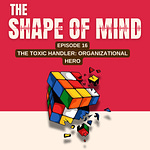In 1969, a 29-year-old man died of a stroke while working in the delivery department of Japan’s largest newspaper. As the tragic details of his death emerged, it became clear that grueling work conditions had played a deadly role. Logging dozens of hours of overtime each week, the man had become physically ill from overwork. But instead of reducing his workload, he was forced to work even longer and more demanding hours, eventually resulting in his death. It became the first documented case of “karoshi” – a Japanese word meaning “death by overwork.” Tragically, it was far from being the last.
Japan has now implemented various innovative solutions, driven by technology and legislation, to address the issue of karoshi and promote mental well-being in the workplace.
Legislative Measures
Stress Check Program (2015): This program mandates companies with over 50 employees to conduct annual mental health surveys. Based on the results, employers must offer support services to employees. This initiative has significantly increased awareness of mental health in Japan.
Technological Innovations
AI-powered Mental Health Monitoring: Companies are partnering with AI providers to develop tools that objectively monitor employee mental health. These tools can:
Analyze voice patterns to identify signs of extreme stress.
Track working hours to enforce overtime caps and detect concealed overtime.
Provide anonymized, aggregated reports to employers to monitor trends across departments.
Attendance Management Systems: Some companies, like Hitachi, have implemented attendance management systems to track employee hours and develop action plans to reduce overwork.
Company Initiatives
Overtime Limits and Reminders: Large corporations like Toyota have introduced policies to improve work-life balance, such as limiting annual overtime and issuing reminders for employees to leave the office by a specific time.
"No Overtime Days": Some companies have implemented "no overtime days," theoretically requiring employees to leave by 5:30 p.m. However, the effectiveness of this initiative has been limited due to Japan's deeply ingrained cultural pressure to overwork.
Targeted Support Programs: Companies are utilizing data from mental health assessments to offer targeted support programs to employees, including sleep therapy and access to mental health professionals.
Other Measures
Karoshi Hotlines: Since the 1980s, hotlines have been available to support workers affected by karoshi.
Public Awareness Campaigns: The government is using various media, including posters, pamphlets, and social media, to raise awareness about karoshi, mental health, and harassment prevention.
Consultation Services: Consultation services are available for:
Working conditions, including illegal overtime work.
Mental health issues and overwork-related health problems.
Harassment.
Freelance problems.
Burnout Recognition
Burnout as an "Occupational Phenomenon": The World Health Organization (WHO) officially recognizes burnout as an "occupational phenomenon" in the International Classification of Diseases (ICD-11). While not classified as a medical condition, it highlights the impact of chronic workplace stress.
Challenges and Future Directions
Cultural Pressure to Overwork: Despite the implemented solutions, a significant challenge remains in shifting Japan's deeply ingrained cultural acceptance of overwork.
Underreporting of Stress: Social stigma and cultural reluctance to appear vulnerable can lead to employees underreporting their stress levels, impacting the accuracy of self-reported surveys.
The blurring of Work-Life Boundaries: With advancements in technology and the spread of telework, maintaining work-life balance and ensuring psychological detachment from work has become increasingly crucial.
Overall, Japan is making strides in combating karoshi and promoting mental well-being through a combination of legislative action, technological innovation, and company initiatives. However, addressing the cultural roots of overwork remains essential for lasting change.













Share this post